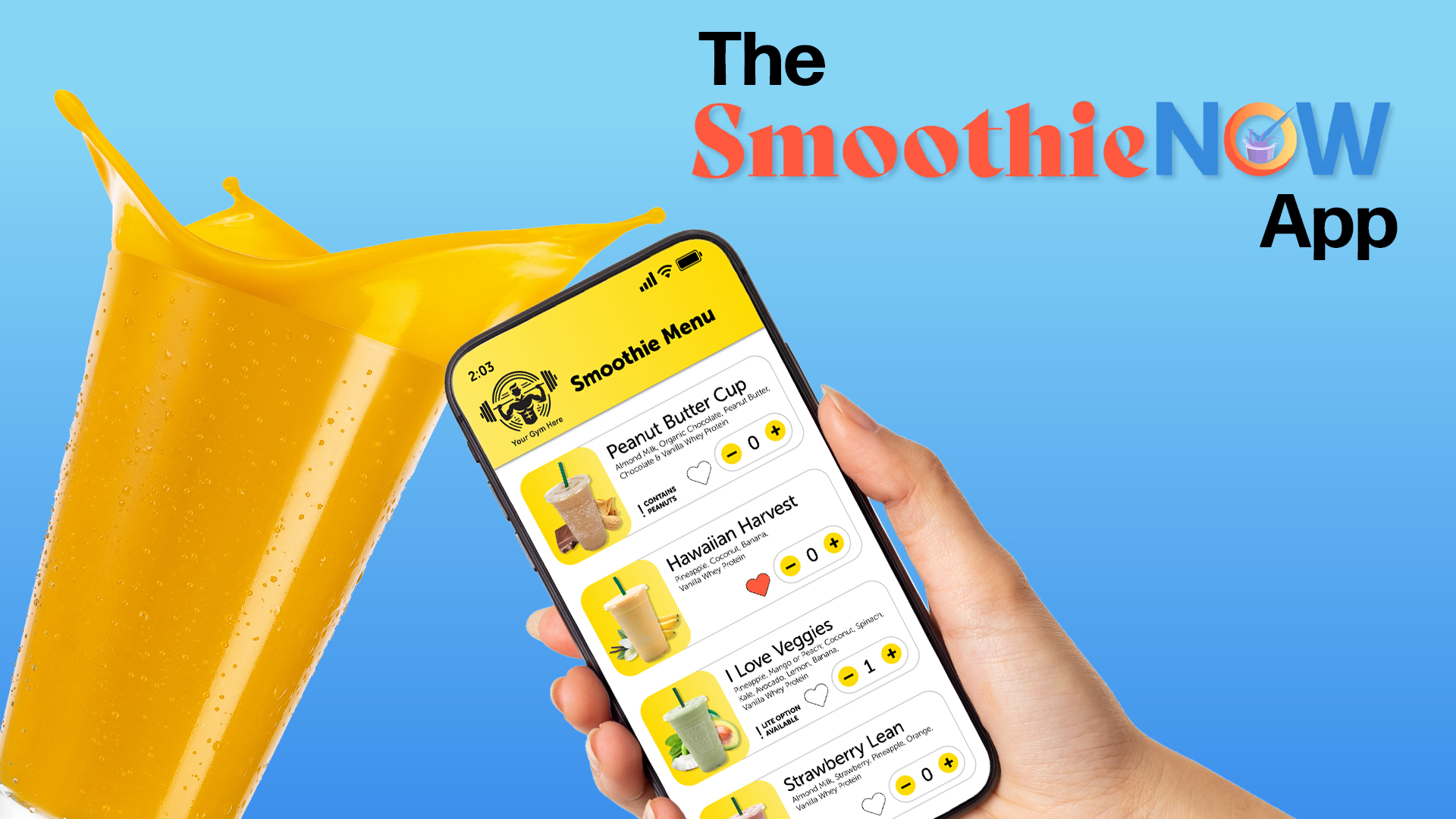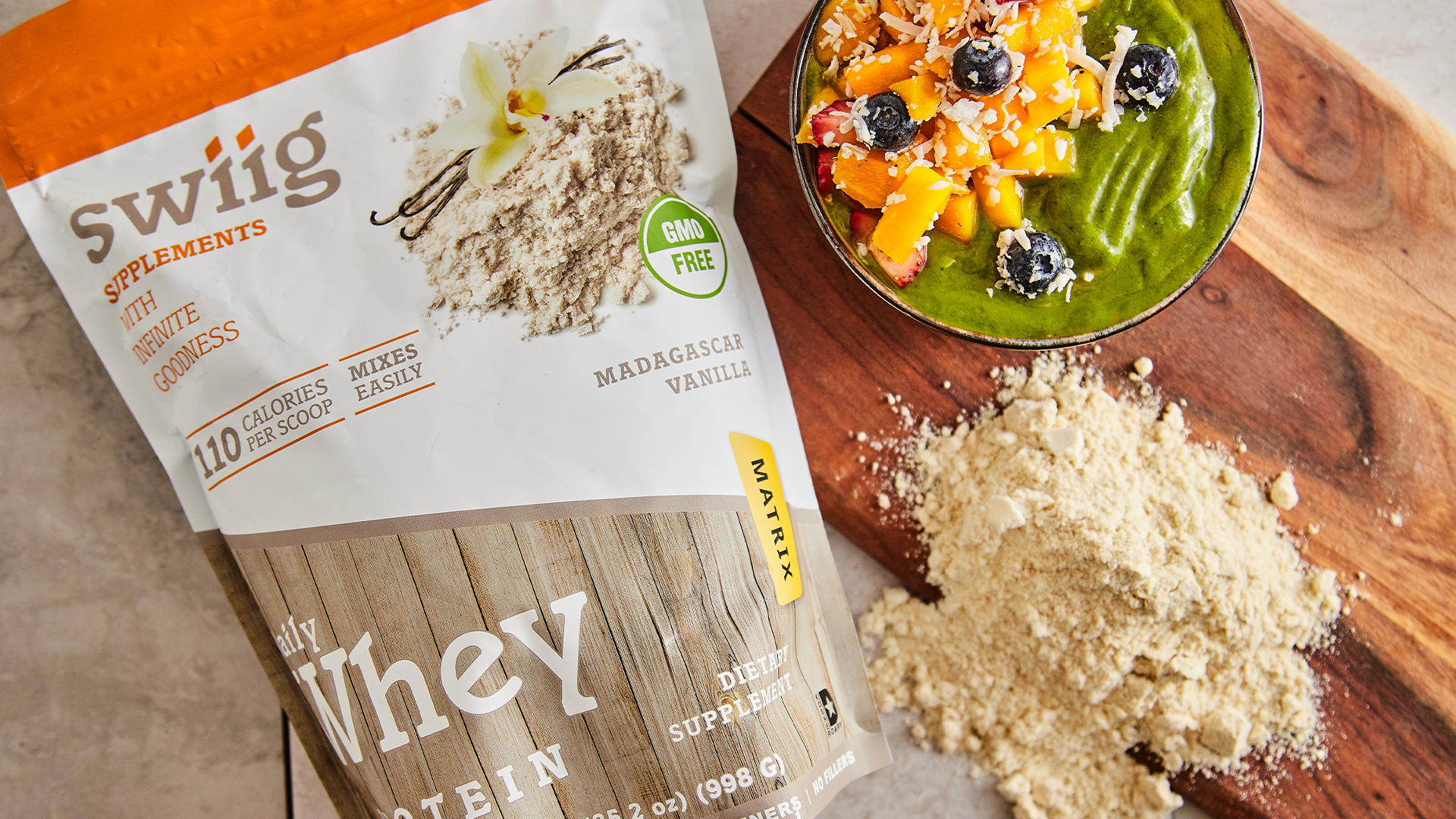You likely already know that proper nutrition is a key component of any successful exercise or training program. Still, many of us often overlook the food we put into our bodies rather than giving it the attention it deserves. Though regular exercise is key to a healthy lifestyle, what you eat and drink before, during and after your workouts can have a big impact on your performance, recovery and results.
In this blog, we take an in-depth look at pre and post-workout nutrition to help you better optimize your diet for exercise.
Why Are Pre and Post-Workout Nutrition Important?
The primary goal of pre-workout nutrition is to provide your body with the fuel it needs to power your training session. When you exercise, your muscles use glycogen (stored carbohydrates) as their primary energy source. When those glycogen levels are low, you’ll feel lethargic, your performance will suffer, and your workout won’t be as productive.
Post-workout nutrition, on the other hand, is focused on replenishing depleted glycogen stores, providing protein to repair and rebuild muscle tissue, hydrating the body and reducing the stress caused by intense exercise. Incorporating the right nutrients at the right times will help you:
- recover faster;
- maximize strength and muscle gains;
- minimize muscle breakdown;
- and keep your immune system strong.
Essential Components of Pre-Workout Nutrition
For most people, having a pre-workout meal or snack 1-3 hours before exercising is a useful strategy to reap pre-workout nutrition benefits. This gives your body time to digest and absorb the nutrients so they will be available when you need them.
Some key nutrients and nutritional strategies to consider include:
- Carbohydrates
Carbs are the body's primary fuel source during exercise. For a typical 1-hour workout, aim to consume 25-50g of carbs from food sources like fruits and vegetables, whole grains, nut butters, or shakes. For shorter workouts, a smaller 15-25g snack, such as a few handfuls of granola, may be sufficient.
- Protein
A moderate amount of protein in your pre-workout meal (10-20g) can be beneficial by boosting energy levels, preventing muscle breakdown, and enhancing muscle growth. Good sources include Greek yogurt, eggs, protein shakes or bars.
- Caffeine
Caffeine is a popular pre-workout supplement, as it has been shown to enhance focus, increase endurance and reduce exercise fatigue. Aim for 1.5-2.5mg of caffeine per pound of body weight consumed 30-60 minutes before your workout. Keep in mind that a cup of coffee or a pre-workout supplement will typically contain around 80-100mg.
- Hydration
Properly hydrating before exercise is essential to performance and recovery. Try to drink 16-24 oz of water 2-3 hours before your workout, and continue to sip water up to the start of your session. Drinks like the Smartfruit Refresher Renew Strawberry, Acai combine the electrolytes of coconut water and the benefits of caffeine to replace what you’ll lose through sweat while keeping you energized during your workout.

Pre-Nutrition Workout TIming
Timing is key for pre-workout nutrition. While individual needs can vary, these general guidelines are a good starting point:
For early morning workouts, focus on hydrating well overnight and have a small snack with 15-25g of carbs and protein within 30 minutes of waking up. Options include a piece of fruit and yogurt, oats made with milk, or a protein shake.
For afternoon or evening workouts, have your main pre-workout meal 2-3 hours prior containing carbs, protein and fluids. A peanut butter sandwich, veggie omelet and fruit smoothie are easy options.
Experiment to find the pre-workout combination that energizes you, sits well in your stomach and optimizes your performance.

Essential Components of Post-Workout Nutrition
While pre-workout nutrition focuses on fueling your training, post-workout nutrition emphasizes recovery and replenishment. The key objectives are to:
- Replenish glycogen by consuming adequate carbohydrates
- Add some antioxidants to support your immune system (like Get Recovered, which speeds up your workout recovery)
- Stimulate protein synthesis and muscle repair by consuming protein (here’s swiig’s low-carb option)
- Rehydrate and replace electrolytes lost through sweat (try Refreshers Replenish)
- Incorporate creatine to enhance recovery and boost future performance
Note: There is an "anabolic window" of 30 minutes to two hours after training when your muscles are primed to absorb nutrients and kickstart the recovery process. For this reason, it is beneficial to consume your post-workout nutrition within this timeframe. Some key nutritional strategies include:
- Carbohydrates
You deplete glycogen during a workout, especially during endurance activities or high-intensity interval training. To replenish these stores, aim to consume 0.5-0.7 grams of carbohydrates per pound of body weight within 30 minutes after your workout. For a 150lb athlete, this equates to 75-105g of carbs.
- Protein
Getting protein after a workout provides amino acids to repair muscle tissue and facilitate new muscle growth. The recommended amount is 20-50g of a high-quality complete protein source.
- Hydration
Replenishing fluids is crucial after any intense sweat session. Weigh yourself pre and post-exercise - for every pound of body weight lost, drink 16-24oz of water. Drinks with electrolytes can also be beneficial for replacing sodium and other minerals lost in sweat. Drink consistently for several hours post-workout.
In addition to post-workout protein shakes and snacks, make sure your first full meal after training includes quality protein and carbohydrates. The sooner you rehydrate and refuel, the better.
What If I Train Multiple Times A Day?
For those who train multiple times per day, strategically distributing protein every 3-4 hours throughout the day can help maximize recovery and enhance muscle building. Be sure to eat sufficient calories from a balanced ratio of lean protein, complex carbs and healthy fats.

Other Recovery Strategies
While nutrition is the foundation of an effective recovery protocol, there are several other strategies that can speed up the process:
- Cool Down - 5-10 minutes of light cardio, stretching or yoga after your workout helps flush out lactic acid and allows your heart rate to return to normal.
- Foam Rolling - Using a foam roller helps release muscle tension, break up scar tissue and increase range of motion. Target major muscle groups and any areas that feel tight or restricted.
- Massage or Self Myofascial Release - Getting regular sports massages or using tools like lacrosse balls can provide many of the same benefits as foam rolling.
- Active Recovery - Going for a walk, swim or easy bike ride the following day helps improve circulation to sore muscles, removing waste products and speeding up repair.
- Sleep - Aim for 7-9 hours per night. Sleep is when muscles and energy stores are rebuilt, so adequate rest is crucial for recovery.
- Nutrition Periodization - Adjusting intake of protein, carbs and other nutrients during training vs rest days can optimize performance and gains. For example, endurance athletes might emphasize higher carb intake on hard training days.
By combining an optimal nutrition strategy with these ancillary recovery tactics, athletes can minimize muscle soreness, boost performance, reduce risk of injury and maximize results. Let's take a look at sample pre and post-workout meals for different training scenarios.
Fuel Your Athletes with Performance Food Centers
Proper pre and post-workout nutrition provides the fuel for your body to perform at its best and recover efficiently. Be sure to experiment with different foods and timing strategies to determine what works best for your body. And for an easy way to get all the nutrients you need, check out swiig. They sell clean products from clean sources for the ultimate nutrition sources.
If you’re searching for a natural, whole-foods-based shake and smoothie bar to fuel your fitness facility, look no further than Performance Food Centers. Serve your athletes the cleanest, natural whole foods and supplements so they can perform their best during their workouts and recover for their next workout.
Sources:
Journal Of Sports Medicine - Role of nutrition in performance enhancement and postexercise recovery
Nationwide Children’s Hospital - Fueling and Hydrating Before, During and After Exercise
Healthline Pre-Workout Nutrition
WebMD - What to Eat Before and After a Workout
Healthline - Post-Workout Nutrition: What to Eat After a Workout
Healthline - How Caffeine Improves Exercise Performance
Training and Conditioning - The Recovery Window: How to replenish after workouts







